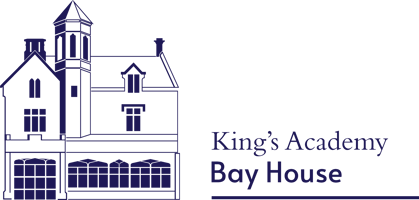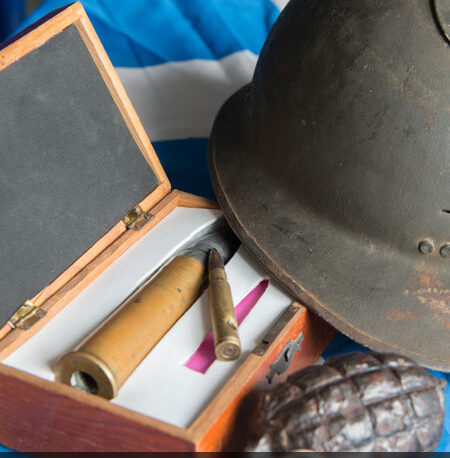History
History has an important role in helping students to understand who they are in the broader context of their place in society, the world and in time.
This will involve a study of many diverse cultures and peoples. Allowing pupils to reach their own independent judgements on the myriad of topics studied, so that they are able to develop a well rounded and knowledgeable understanding of their country’s history and that of the wider world.
We aim to help students develop successful working relationships with others through group activities and role-play; as well as developing their self-discipline, independent learning and problem-solving skills. We use a range of active teaching and learning techniques. These include textbooks and resources; visits and trips; and the use of ICT.
Key Stage 3
Students learn about a wide range of fascinating topics.
In the Autumn term of Year 7 pupils will learn about the Battle of Hastings and then investigate the causes and consequences of the Norman Conquest, and the impact it had on Britain. They will study the Harrying of the North, the building of castles, the Domesday Book and the feudal system. Pupils will then learn about the importance of the Catholic Church in medieval England before studying the Crusades and the different motivations Europeans had for their involvement in this conflict.
In the Spring Term pupils will study the impact the Black Death and the Wars of the Roses had on society and arrive at a judgement on which caused most change to England. They will then study medieval African Kingdoms such as Mali, Benin and Greater Zimbabwe to learn how each kingdom wielded their power.
In the Summer term pupils will study the Tudors, with a particular focus on the Reformation in both England and the rest of Europe. They will then carry out in depth enquiries into the Stuart era and the English Civil War to learn the reasons why Charles I was executed.
In Year 8 pupils will study the British Empire and how Britain established itself in India and Australia. Pupils will also consider the impact of the British Empire upon India, Australia and Britain. This will then lead to the study of the Transatlancis Slave Trade and the treatment of enslaved Africans. They will learn about how enslaved Africans resisted independently and through the Haitian Revolution under Toussaint Louverture. Pupils will then to analyse the causes of both the abolition of the slave trade and slavery in Britain.
In the Spring term we assess the extent to which the Industrial Revolution brought progress to all in Britain. Pupils will look at the agricultural developments and changes in technology as well as the political and social changes which accompanied the Industrial Revolution. After half-term they study the First World War and its causes. Lessons will focus on trench warfare, propaganda and the diversity of the people who fought in this conflict.
In the Summer term we study the role of the Suffragists and Suffragettes in gaining the vote for women. We also study the causes and turning points of the Second World War. We also do a depth study on the Holocaust to try and understand antisemitism throughout history and why this event took place in the 20th century. We finish our studies in Year 8 with an investigate into the civil rights movements in both the United States of America and Britain.
It is hoped that the study of History at KS3 will give the opportunity for pupils to learn about the diverse experiences of different cultures, races, genders and social groups and help pupils to reach well judged and grounded opinions on the world they live in today.
Pupils will be formally assessed at different points throughout the year on a variety of different historical skills. They will be asked to display their knowledge and understanding of different topics, and skills in causation, interpretation, research, evaluation and chronology. There is also a large emphasis on returning to earlier topics and recall of knowledge.
Key Stage 4
History is a very popular option at Key Stage 4. The department delivers the OCR (B) SHP course at GCSE as this makes the subject accessible to all students.
The pupils begin studying GCSE at the start of Year 9 by learning about crime and punishment from the Middle Ages until the present. This gives an opportunity to show how changes in British society have impacted on Britain’s approach to law and order across time. It will explore how attitudes towards social class, gender, race and religion have affected crime, policing and the justice system. After this, they study ‘The Elizabethans’ between 1580 and 1603. This is a depth study and pupils will learn such things as family life, the different experiences of the wealthy and the poor, the persecution of Catholics, and global exploration.
In Year 10 pupils move on to study ‘Living Under Nazi Rule’, where they look at how Hitler and the Nazi party consolidated power and the impact that their rule had on many aspects and groups in German society (youth, women, workers, political and religious groups). They will then study what life was like in occupied Europe and the different stages of the Holocaust. Pupils will then study ‘The Making of America’. This topic traces the varying experiences of three groups: Native Americans, African Americans and white settlers across the 19th century. Pupils will learn that much that occurs today in the USA had its origins in this tumultuous period of its history.
In Year 11 pupils will complete their final piece of the course, which is a local study on Portchester Castle. This involves a field trip to this site. Pupils will learn about the ever evolving uses of Portchester and the different groups of people that used it. From Romans, to Anglo-Saxons, to Normans, to the prisoners of war incarcerated there during the Napoleonic Wars, including the French Officers who built a theatre there and the Caribbeans who fought for France in this period.
Pupils will be assessed through a mix of classroom-based assessments, formal mock examinations, practice examination questions and knowledge recall tests. This will allow pupils to demonstrate their subject knowledge, as well as their understanding of a variety of historical concepts such as change, continuity, causation, consequence, diversity, similarity and significance. Due to the demands of the GCSE syllabus, the importance of frequent and purposeful revision is stressed to the pupils through our homework schedule. The pupils are provided with multiple opportunities to practise the different examination question styles throughout the course; we achieve this through teacher-led examples, as well as independent pupil work. Pupils are provided with timely feedback to allow them to improve upon their writing and reach their potential.
Sixth Form
History retains its popularity at Sixth Form where we study AQA History. This involves the teaching of The Tudors, Germany 1918-1945, and a piece of coursework involving a 100-year study about the relationship between the Monarch and Parliament during the reign of the Stuarts.
Ancient History is an increasingly popular subject. It involves the detailed study of Ancient Greece during the Persian Wars and the defeat of Athens in the Peloponnesian Wars along with a depth study of Sparta. It also covers Ancient Rome from the fall of the Republic to the Julio-Claudian emperors. Teachers encourage students to become independent learners and prepare them well for future studies at university
Trips and Visits
The department is committed to bringing the curriculum alive and run a number of trips across the key stages both at home and abroad, along with inviting outside speakers.
At Key Stage 4 there is a trip to the London Dungeons and either a tour of Whitechapel to investigate the crimes of Jack the Ripper or of the Globe. There is also a field trip to Portchester Castle.
Students who study A Level History and Ancient History attend lectures and conferences in London and elsewhere to prepare them for undergraduate life. There are also trips to Berlin and Rome for our A Level students.

